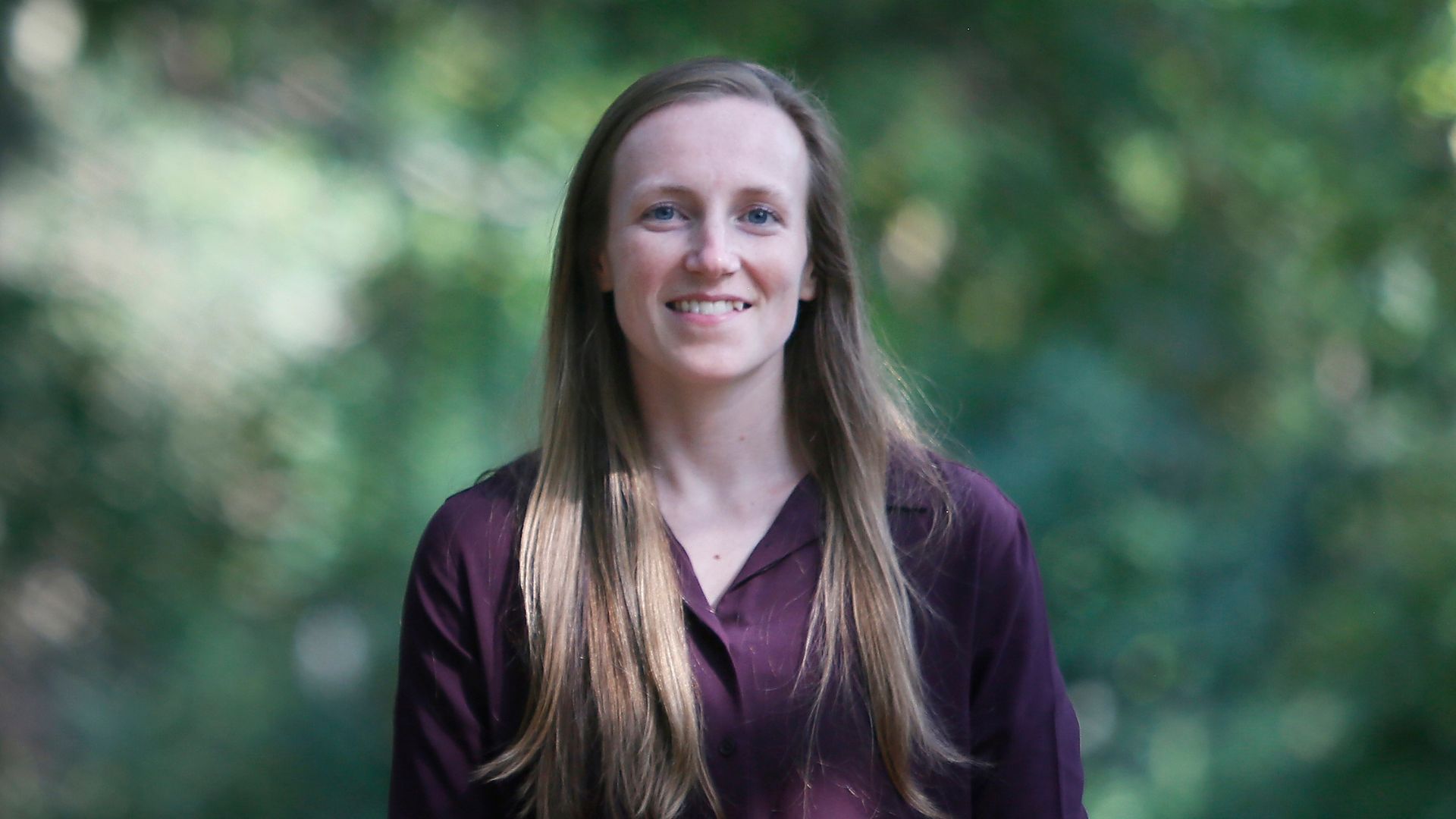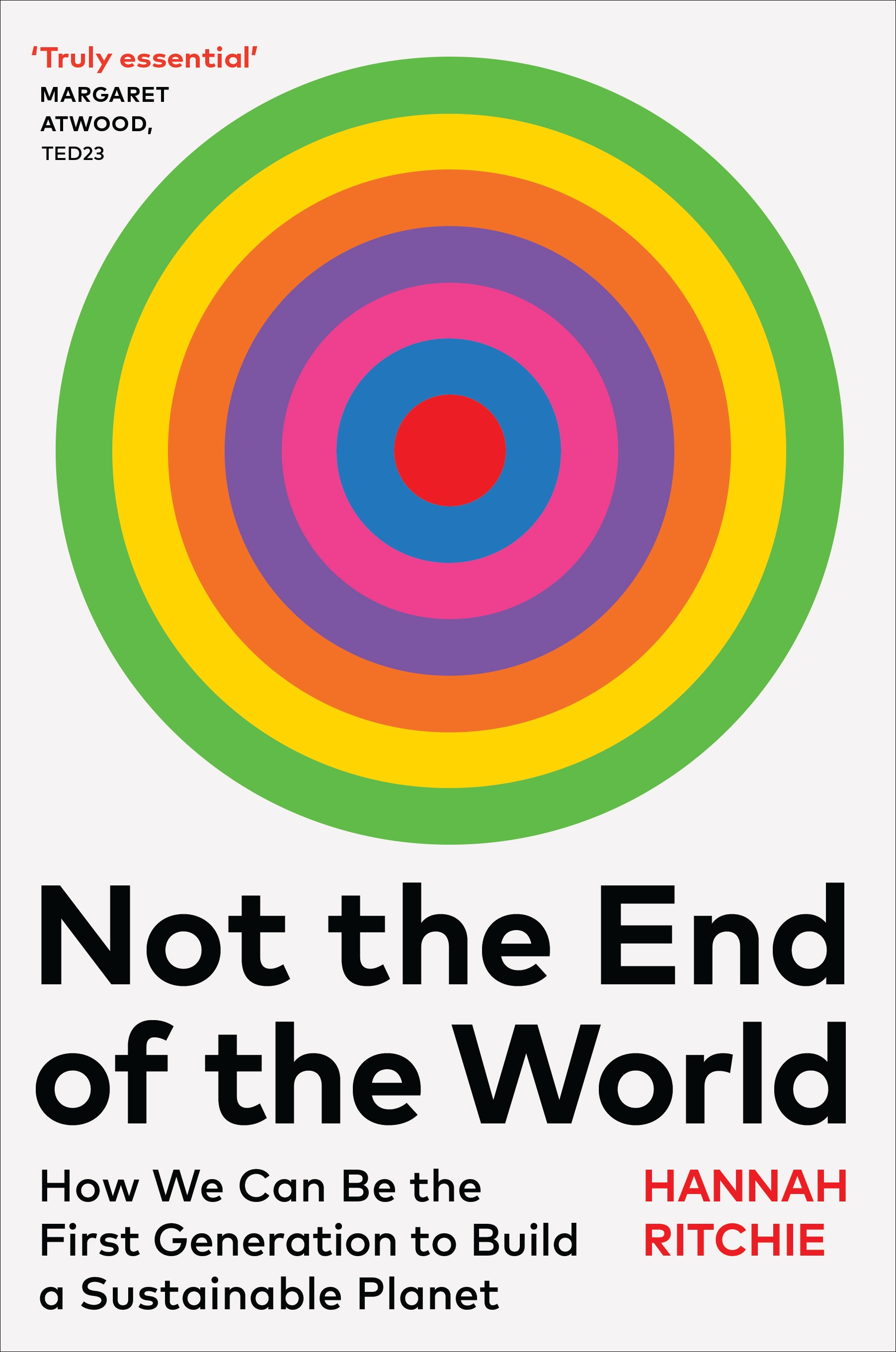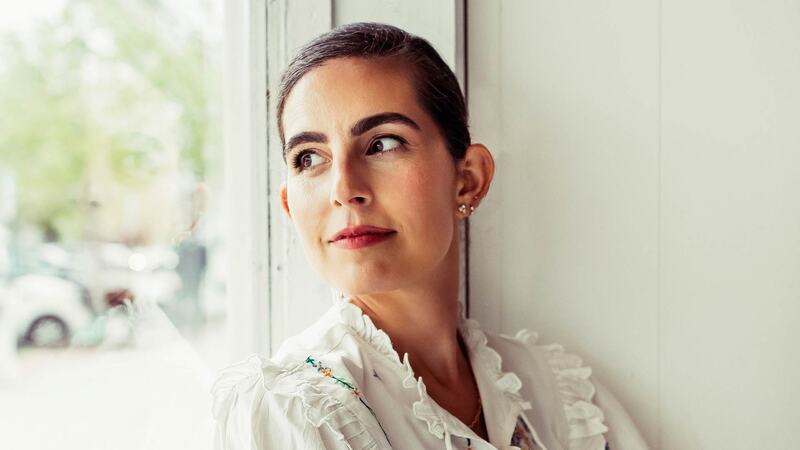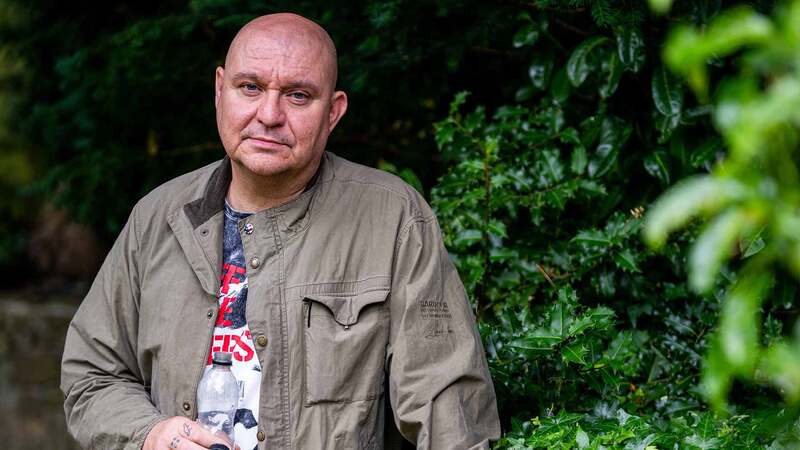You are viewing your 1 free article this month. Login to read more articles.
Hannah Ritchie on building a sustainable world in her radically positive book on climate change
 Caroline Sanderson
Caroline SandersonCaroline Sanderson is a non-fiction writer, editor and books journalist. Her books include a travel narrative, A Rambling Fancy: in the F ...more
If you think the climate crisis is a precursor to the end of the world, think again. Environmental scientist Hannah Ritchie says it helps to look at the data.

Caroline Sanderson is a non-fiction writer, editor and books journalist. Her books include a travel narrative, A Rambling Fancy: in the F ...more
Taking a deep dive into data on the climate crisis might not seem the most likely route to feeling more hopeful about it. But in her bold and radically positive first book, Not the End of the World: How We Can Be the First Generation to Build a Sustainable Planet (Chatto & Windus), environmental scientist Hannah Ritchie marshals a wealth of such data to make you rethink almost every depressing thing you thought you knew.
With chapters on subjects including air pollution, food, ocean plastics and overfishing, it explains what’s working, what isn’t working and what we need to focus on so we can leave a sustainable planet for future generations. The book has already garnered glowing early praise from Tim Spector, Tim Harford, Rutger Bregman, Gaia Vince and the one and only Margaret Atwood who calls it “truly essential”.
What sets Not the End of the World apart from other books on the subject is the way in which Ritchie zooms out from the Doomsday headlines to demonstrate that we’ve made so much progress and so fast that we could be on track to achieve true sustainability for the first time in history. “For me it just makes sense to look at the data. Because the data shows us what we need to do, and how quickly we can do it,” says Ritchie from her home in Edinburgh when we speak via Zoom call.
Ritchie is far from being a Pollyanna on climate change. “I have all the same underlying emotions as other people. I still feel pretty scared, I still feel pretty anxious. But the question I try to ask is: what is the most effective way to solve these problems? When seeking to drive change, the data for me is the perfect complement to the emotion.” In Not the End of the World, she strikingly asks us to hold two thoughts in our head at the same time: “Everything is not fine, and things are improving.”
It made me realise that just reading the headlines is not a particularly useful way to understand what’s really going on because you only get tiny snapshots
Ritchie, who is 29, grew up in Falkirk and studied environmental science at Edinburgh University. An avid reader and writer as a child, she originally set her heart on a career in science journalism but was initially conflicted as to whether to study science or journalism to make that happen. Science won out, and she later did a PhD on the environmental impacts of global food systems, a topic that is also addressed in Not the End of the World. “Basically I looked at how to feed the world without frying it at the same time,” she quips.
Driven by the data
While studying she would zealously follow the Doomsday climate change headlines. And as a result, she both added “fire to my own anxieties” and mistook “the intensity of my second-hand suffering for an increase in the intensity of global suffering”. But then came a dramatic turnaround in her thinking via the trail-blazing work of the late Hans Rosling, author of Factfulness: Ten Reasons We’re Wrong About The World—And Why Things Are Better Than You Think. Says Ritchie, “Rosling showed me that when you took a step back and looked at the data on many of the metrics about human wellbeing, including poverty and child mortality, nearly all of it was moving in a positive direction. It made me realise that just reading the headlines is not a particularly useful way to understand what’s really going on because you only get tiny snapshots.” The revelation prompted Ritchie to engage more thoroughly with the actual data on climate change. “It was a life-changing way of seeing the world for me.”
The majority of people are concerned about climate change and want to see policies that promote climate action
Ritchie now works for The World in Data. Based at Oxford University, this Open Access online scientific resource focuses on large global problems including climate change, collecting and analysing the latest findings from scientific research. “Then we try to explain it to people in an understandable way.” And bringing the same approach to Not the End of the World, Ritchie busts a myth with crystal clarity on virtually every page. Worried our oceans will be empty by 2048? The data shows it’s likelier that there will be more fish by 2048, not fewer. Trying to avoid palm oil at all costs? In fact this super-efficient crop might help prevent further deforestation. Think eating local is better for the environment? Actually, it’s what we eat, not how far it’s travelled, that matters most. And far from leading more carbon-intensive lifestyles than ever before, per capita emissions actually passed their peak more than a decade ago. Who knew?
Ritchie has recently switched from being vegetarian to vegan, based on her knowledge of how much what we eat counts, but she is careful in the book not to be prescriptive about what other individuals ought to do, presenting the data and leaving us to make up our own minds. And while individual actions matter, Ritchie is clear in showing that systemic change is crucial, suggesting for example, that we vote for leaders who support sustainable actions. “The majority of people are concerned about climate change and want to see policies that promote climate action. So when governments go against that, they are actually working against their own interests.”
Make the right choices
As consumers, rather than shuddering at the sight of a plastic bag or drinking straw, we might instead consider making buying decisions to help lever global progress on climate change. Ritchie says: “In middle and lower-income countries, the solutions need to be cheap. If they’re expensive such countries are not going to adopt them because they have other priorities, like raising overall standards of living. But relatively rich people in higher-income countries can help to pull down the cost of these technologies. If you’re buying an electric vehicle rather than a petrol one, you’re signalling to the market that this is the way the world is moving. If you’re buying meat substitutes rather than meat, you’re signalling this is what you want.”
Extract
My job is not to do original studies, or to make scientific breakthroughs. It’s to understand what we already know. Or could know if we studied the information we have properly. Then explain it to people: in articles, on the radio, on TV, and in government offices so they can use it to move us forward.
Just as Hans Rosling showed that news headlines don’t teach us much about global poverty, education or health, I’ve found that trying to build an environmental world view based on the latest wildfire or hurricane is no good. Trying to understand the world’s energy system and how to fix it from the latest breaking story won’t get us anywhere.
If we want clarity we have to take in the full picture, and that means giving ourselves some distance. If we take several steps back, we can see something truly radical, game-changing and life-giving: humanity is in a truly unique position to build a sustainable world.
Which myth she would most like her book to dispel? “I think it’s the misconception that we’re making no progress on climate change. We’ve been battling the climate crisis for decades but if people believe we aren’t making any headway my fear is that they will feel paralysed at a time when we really need to be ramping up what we’re doing. Because although we are making progress, we’re still not doing so fast enough. We face massive problems, but they are solvable if we really get going on them.”









